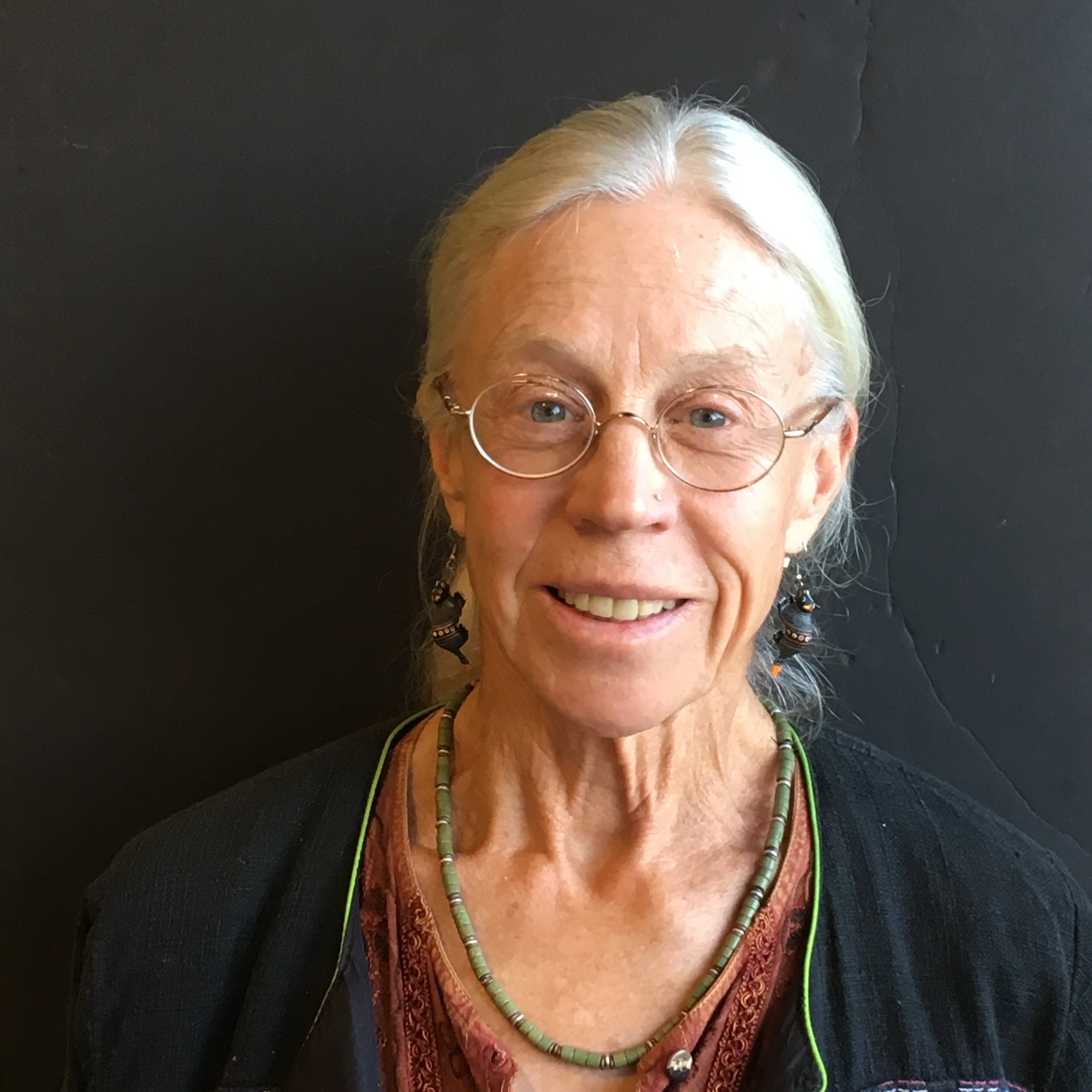I joined the Moscow Food Co-op February 2, 1976, having arrived the day before from San Francisco. I immediately saw my volunteer niche in the teas and herbs because they were in funky jars with messy labels. I got good jars from the new recycling center, researched each herb (in a book), and thanks to the free IBM Selectric typewriters at UI library, made new labels with information about uses.
I wasn’t new to co-ops. I had shopped at one in Albuquerque and then in San Francisco. What co-ops had for sale in those early days was just a portion of the food I bought—rice, beans, oatmeal, whole wheat flour, mostly. But supporting a co-op was important to me because of what it said about my values, habits, and interests. Food co-ops—their goals, volunteer structure, anti-capitalist way of doing business—were daily life expressions of my values and interests. Those were shared by millions of other young adults. But, indulge me, let me describe one influence that goes back to my childhood.
I was born in 1943. My parents were in Albuquerque at the end of World War II. My father worked for a roofing company and later the Santa Fe Railroad “doing the books”, which made no sense to me but sounded wonderful. At night he resumed his pre-war occupation, teaching violin (and soon guitar). He got home between 5:00 and 5:30. Mom had dinner ready. There were 3 kids. 5:30 weekdays was a sacrosanct hour. And we were always hungry, primed by smelling the tuna casserole with potato chips or the sloppy Joes or chicken pot pie for the last hour of waiting for Dad to get home.
From 5:30 to 6:30 we ate and talked. Dad, animated, was a story teller and happy to be home. He asked us about our day and we told him in detail. Mom, reserved, generally gave the stage she had created to the players. At 6:30 dinner was over and Mom cleaned up. At 7:00 the first of three or four music students arrived for 30-minute lessons in the living room. We had to be quiet. That meant reading or drawing or quiet board games or in the summer, playing outside in the back yard until bedtime. Both the radio and the TV (we got one in the mid-50s) were pieces of furniture in the living room.
When I was 15, this routine ended; it had lasted nine years (more than half my life, most my brother’s life, and all my sister’s life). Everything changed. Not in a bad way, nobody died, we all thrived. Our lives rolled on, one day and one decision after another, in five directions. Soon there were more, not less, people around the dinner table. But that epoch (in this case, neatly the ‘50s) of the five of us gathering around the campfire and sharing the day’s catch was done.
What’s my point? Mom cooked, every meal passed through her hands. We ate together and conversed. We kids learned some good habits: try it, maybe you’ll like it; if you want dessert, you have to eat some of it; take your dishes to the sink; say thanks. We learned how to listen and talk and acquired a lot of information through our parents’ hearts and minds and prejudices about the world beyond the light of our kitchen.
For heaven’s sake, I’m not holding up this tender picture as a lost paradise.
My dad, bless his heart, the worthy star of the show, didn’t cook or wash a dish. When Mom died, he learned how to scramble eggs and open a can of stewed tomatoes and crumble soda crackers into it. And the food? It all came from Big Ag, bathed in toxic cocktails. The word “organic” wasn’t applied to food until the ‘60s, I think, at least in Albuquerque. Nothing was “local” that you could buy in Safeway. There were no farmers’ markets. I was allergic to cow’s milk and Mom had a horrible time trying to get goat’s milk. She gave up and I outgrew a slew of allergies by virtue of contact. Mom made a simple green salad every dinner, but we ate a lot of canned vegetables and soup. Beef and pork and chicken and eggs came from concentration camps. Sentient beings raised to be eaten were considered machines to be run until they died.
A lot has changed. Family structure, who cooks, quality of sloppy joes, where people eat. Now, Americans eat more of their food out than at home. Sales at eating and drinking establishments are larger than sales at grocery stores. This doesn’t mean that eating out = bad choice. When I buy food already prepared, it’s usually from the Co-op and top quality. I’m grateful for the soups in particular because they are quite a lot of trouble to make. I’m also grateful for the skilled cooking and high quality of the ingredients of several nearby restaurants.
But still I say, “Cook your own food and eat at home. Most of the time.” Go through the steps. Go through the mental exercise of planning meals and the physical walk of acquiring ingredients. Cook by recipe and instinct. Share cooking and cleaning up. Eat with other people, especially children. You have the opportunity to broaden their worlds, impart conversational skills, useful information, your opinions and values.
What I and my brother and sister learned around the dinner table is largely what made us, I think, not an embarrassment to our parents. Gathered in a circle, eating, listening, talking is largely what has always made us all, going all the way back through all our humanity. Let’s hope our old DNA holds steady.
- Diana Armstrong
Diana Armstrong has volunteered, shopped, and worked at the Co-op since 1974 except when out of the state or country. She is presently volunteering in the Co-op's recycling efforts.
Do you have an opinion you’d like to submit to the Co-op for publication on this blog? Write to us at marketing@moscowfood.coop and your piece could be published!


